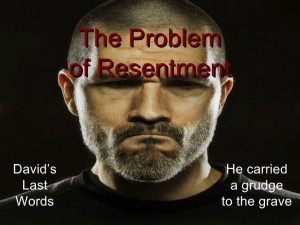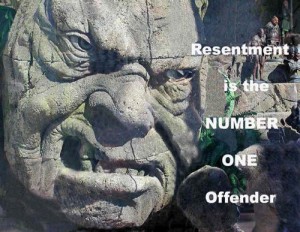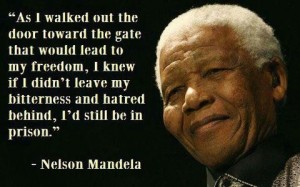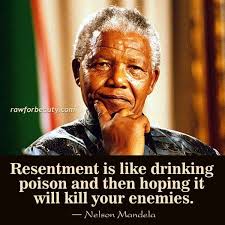 The response to my beingness article has been a cry for help… Help to get you to beingness.
The response to my beingness article has been a cry for help… Help to get you to beingness.
This article talks about three ways you block the flow. There are, of course, a lot more ways, but we’ll start with these. When you release these, you’ve done 50% of the work to get to beingness.
We’ll look at the Three R’s, resignation, resentment, regret. With these 3 R’s we can create a turning point in our lives.
Most people wait for something to turn them and their lives around. We are going to take an active approach… we are going to create this turning point by doing the exercises fully.
You will need your integrity checklist for this… You don’t want to make this an event. Instead you want to make it a gentle process. A gentle process where you bring light to where there is no integrity, no breath, no freedom.
As long as you are wrecked by the three R’s, resignation, resentment, regret, beingness is not available to you, only pretense.
This is how the blockages are born:
The ego/mind makes far fetching, sweeping assumptions. It closes the door on possibility. On intimacy, on love, because of things you did, you didn’t do, or were said or done by someone.
 We’ll need to pry those doors open, so your being can come out.
We’ll need to pry those doors open, so your being can come out.
We’ll move you from your singular, limited view of what happened to a 360 degree view.
Where you are no longer the blockage to the flow of life.
 Look at the pictures and tell me if you can see the tight jaw muscles… that is where you block the flow… But relaxing temporarily those muscles won’t do: you actually need to change your mind… I know, it is hard… but it’s worth it.
Look at the pictures and tell me if you can see the tight jaw muscles… that is where you block the flow… But relaxing temporarily those muscles won’t do: you actually need to change your mind… I know, it is hard… but it’s worth it.
Warnin g:
g:
if you don’t do the exercises fully you’ll dig yourself deeper into the hole… so if you are not willing, don’t even start it. You can read the article to decide if you are willing or not.
 We’ll start with the first R: resentment.
We’ll start with the first R: resentment.
Meaning:
bitter indignation at having been treated unfairly.
synonyms: bitterness, indignation, irritation, pique, dissatisfaction, disgruntlement, discontentment, discontent, resentfulness, bad feelings, hard feelings, ill will, acrimony, rancor, animosity, jaundice;
In resentment something happened, something happened that you judged as unjust, unloving, unfair, and hurtful.
You have many resentments.
Your first job is to make a list of all the people, groups, or organizations that you hold a grudge against.
Take at least 10 minutes to make your list.
- This is the third!
Start with the 3rd person on the list.
We’ll bring forgiveness to those people, true forgiveness. And we’ll keep going back and forgiving them, until all the charge disappears, and there won’t be any feelings when you recall the incident.
On my list Landmark Education is the third. My complaint is that they treated me in a way that made it clear to me that they will never recognize my greatness, my contribution.
Don’t forget, I have forgiven rapists, and thieves, and abusers already, so I am down to my last forgiveness…
If you pay attention, my complaint is in sync with my soul correction: they didn’t acknowledge me as superior. I am sorry, but this today occurs to me as VERY funny… lol.
You’ll detect a common theme in your forgiveness list. And your list will be in sync with your soul correction.
This knowledge will be very useful: it will guide you in this process.
OK, here is how it goes:
- Step 1:Recall the incident. Be there. Where was it, what did you do, what did they do. Who else was there? What was the temperature like? Were there any noises? Smells? Sensations? Now tell it like a movie script: they did and you did etc.What did you feel? Feel it now. Now, still in movie script style, look at the incident from their point of view… how it was for them. Use intuition.
For example, in my case, they felt superior (my perpetrators) and they felt threatened by this little nobody (me) who came out of nowhere saying things that threatened their superiority.
Then, again, switch the story, and retell, like a movie script, from the onlookers’ point of view, the sideways view.
- Even if there was no actual onlooker, the camera could be there, rolling.
In my story, it was simple: this ‘god,’ Forum Leader, was approached by a participant and tried to explain something to the ‘god.’ The ‘god’ made a dismissive move and left the conversation. The participant stood there for a long time, puzzled wearing a hurt facial expression. She was looking in the direction of the closing door of the Forum Leader room.
- Step 2: What did that happening, what did that incident teach you about yourself, about the world? How did it benefit you? You may have never looked at it this way: you will now.
How this benefited me is this: I realized that I am on my own. That I am a leader not a follower. It opened up the world of creating my own ‘school’ instead of giving Landmark Education my time, my heart… Without that incident it would not have happened. I am actually seeing that it unstuck me. It set me free.
This may take you the longest time, but if you don’t actually see, don’t actually feel gratitude, do not move to the next step.
Even being raped, being abused, being abandoned, being put to prison have their benefits if you are willing to look.
- Step 3: Put yourself into the other person’s shoes and become them. Same age as theirs, same gender as theirs, same urges, same upbringing, religion, education, cultural influences. Feel what it was like for them. See what they did from their point of view. What they felt then, what they felt after.
When I was about three and a half, I was raped by a drunk man.
I could not shake it off until I did this part of the mental exercise.
In this part I could feel the regret, remorse, the shame, the horror this person felt when he sobered up.
I could see that he suffered more than I did.
I released him from his bondage when I forgave him, and I could feel his gratitude.
People are people, even murderers feel shame, sadness, remorse, shame.
When you can feel compassion, sadness for them, then you are ready to forgive them.
Don’t just rush to be done, to get through, to get to the other side of it: it won’t do anything for you.
You really need to feel sad for them, warm for them, grieve for them.
Then tell them… Talk to the hand… the hand playing the part of the offender.
Warning: this is a mental exercise. Don’t you DARE talking to the person! It won’t go well. It is your process, and it has nothing to do with them.
You are not doing it for them, you are doing it for YOU.
No one told me this, and I made the blunder to write my forgiveness letters, one to my mother and another to my father. It put me in even deeper bondage.

 Your job is to release yourself, so you are free. They will have to do their own work.
Your job is to release yourself, so you are free. They will have to do their own work.If you are having a difficult time doing it without a partner, pick someone who you trust to be a stand-in for the other person.
For a time I worked with incest victims. I did the most good, maybe the only good, when I allowed them to tell me everything that was there to say, as if I were the perpetrator.
Huge release.
Then forgive them. Say: I forgive you. Feel the burden fall away, the tension disappear. If you don’t… go back and do it again, with the same person.
- Step 4: do this with every person on your list.
If you need help, write to me… email is OK in this case.
This article is getting too long: I will put the exercises for regret and resignation in another article. Stay tuned.

it’s a good idea to start with an incident where you have a little distance.
Thanks, Sophie. I was actually trying to do this I thought. The incident was that my supervisor, in front of my colleagues, was dismissive. During a meeting, I asked her if I could ask a question for clarification and she said yes. She talks a lot so it is difficult to get a word in. I then began to talk and she started talking about cake or something-very rude. After a minute of talking out of her head, she says “okay what were you saying?” I was so annoyed, I told her that I could care less about the answer and my colleagues chucked, but I think they may have been scared for me or uncomfortable. She seemed okay with the response, but urged be to ask the question and I didn’t want to equal her rudeness in front of my colleagues so I asked my question and received an obscure answer. It seemed like she was on drugs. Anyway, I tried to see the situation differently h it has been over 24 hours). I felt like I was succeeding but I keep going backwards. I tried to see it as an adult instead of a brooding kid and that’s where I am stuck. I am ruminating instead of moving forward. Now I am going to start again and use this guide. After I make my list I may find that I need to start with someone else first.